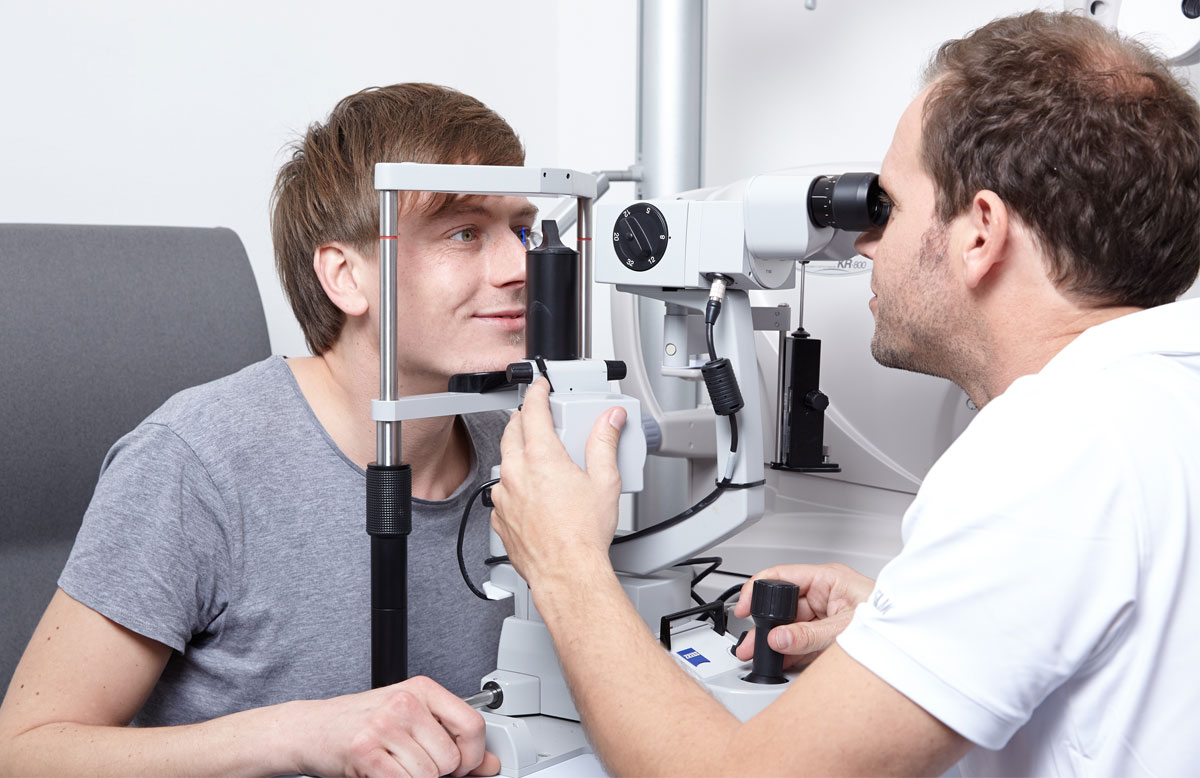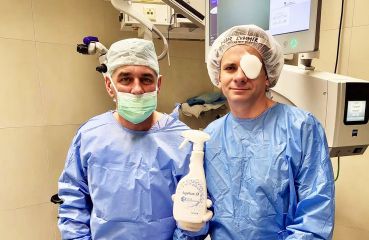How often should you have your eyes examined according to the experts?
Regular eye examinations should be automatic and performed not only in case of corrections of dioptric deficiencies such as myopia, farsightedness or astigmatism, but also if there are no problems at all. Eye examinations are important for healthy eyes at all ages. At the same time, these examinations can detect not only eye, but also other different diseases.
The first eye examination should be completed as early as the sixth month of life, if there is any genetic predisposition on the side of the parents - dioptric deficiencies, dullness or squinting.
The next eye examination should follow as part of a pediatric examination when the child is three years old. An eye examination at the beginning of school attendance, i.e. when the child is 6-7 year old, is also very important.
You should also visit the ophthalmologist if the marks get worse in school. It may also mean that the child cannot properly see what is written on the board.
Subsequently, ophthalmologists recommend preventive eye examinations every two years. If you feel any eye problems in your adulthood, do not wait for improvement. Symptoms when you should consider visiting your ophthalmologist include: a headache, reduced visual acuity close or distant, blurred or double vision, feeling pressure, burning or cutting inside your eyes, enlarged eye capillaries, or if you feel dryness in your eyes.
With increasing age, after reaching 45, it is recommended that you take regular eye examinations, which should include intraocular pressure examinations. If a more serious eye disease has occurred in your family, you should regularly take eye examinations after reaching the 20 years of age.
Through a preventative eye examination, the ophthalmologist can detect eye problems in a timely manner such as cataract or glaucoma, macular degeneration, but also other more serious diseases such as high blood pressure, diabetes, or other metabolic disorders. It can also detect tumors.
Preventive eye examination should include the use of different diagnostic testing equipment, thanks to which the ophthalmologist receives proper information about the overall health of your eyes.

A preventative eye examination should include the following examinations:
In order to keep your eyes healthy it is not only important to regularly undergo your eye examinations, especially after you reach 40, but also a healthy lifestyle. You should also observe the principles of appropriate working conditions such as proper lighting, regular computer breaks, or correct humidity.
When should one start with eye examinations?
The first eye examination should be completed as early as the sixth month of life, if there is any genetic predisposition on the side of the parents - dioptric deficiencies, dullness or squinting.
The next eye examination should follow as part of a pediatric examination when the child is three years old. An eye examination at the beginning of school attendance, i.e. when the child is 6-7 year old, is also very important.
You should also visit the ophthalmologist if the marks get worse in school. It may also mean that the child cannot properly see what is written on the board.
Subsequently, ophthalmologists recommend preventive eye examinations every two years. If you feel any eye problems in your adulthood, do not wait for improvement. Symptoms when you should consider visiting your ophthalmologist include: a headache, reduced visual acuity close or distant, blurred or double vision, feeling pressure, burning or cutting inside your eyes, enlarged eye capillaries, or if you feel dryness in your eyes.
With increasing age, after reaching 45, it is recommended that you take regular eye examinations, which should include intraocular pressure examinations. If a more serious eye disease has occurred in your family, you should regularly take eye examinations after reaching the 20 years of age.
Through a preventative eye examination, the ophthalmologist can detect eye problems in a timely manner such as cataract or glaucoma, macular degeneration, but also other more serious diseases such as high blood pressure, diabetes, or other metabolic disorders. It can also detect tumors.
What kind of examinations should one take on a preventive eye examination?
Preventive eye examination should include the use of different diagnostic testing equipment, thanks to which the ophthalmologist receives proper information about the overall health of your eyes.

A preventative eye examination should include the following examinations:
- Vision – it is an examination of visual acuity. It is performed using optotypes in the distance (5-6 meters) or close (from a distance of 40 cm), so-called reading distance.
- Measurement of intraocular pressure – measured by tonometer and used for diagnosis or prevention of eye diseases such as glaucoma.
- Microscopic examination of the anterior segment of the eye – conjunctiva, cornea, iris and lens.
- Examination of the eye background – using an ophthalmoscope that identifies changes on the eye background.
- Pachymetry – measurement of corneal thickness.
- Corneal topography - is an examination that measures the curvature, thickness and shape of the cornea, and thanks to it, the ophthalmologist can detect eye diseases such as keratoconus (in this case, the cornea gradually bends and gets thinner).
- OCT examination of the retina – Optical Coherent Tomography - is used mainly for retinal diseases (yellow spots, diabetic changes, post-traumatic conditions) or optic nerve diseases (glaucoma, neurological diseases such as multiple sclerosis or Alzheimer's disease).
- Endothelial microscope examination – examination of the inner layer of the cornea to ensure its nutrition and transparency
In order to keep your eyes healthy it is not only important to regularly undergo your eye examinations, especially after you reach 40, but also a healthy lifestyle. You should also observe the principles of appropriate working conditions such as proper lighting, regular computer breaks, or correct humidity.













